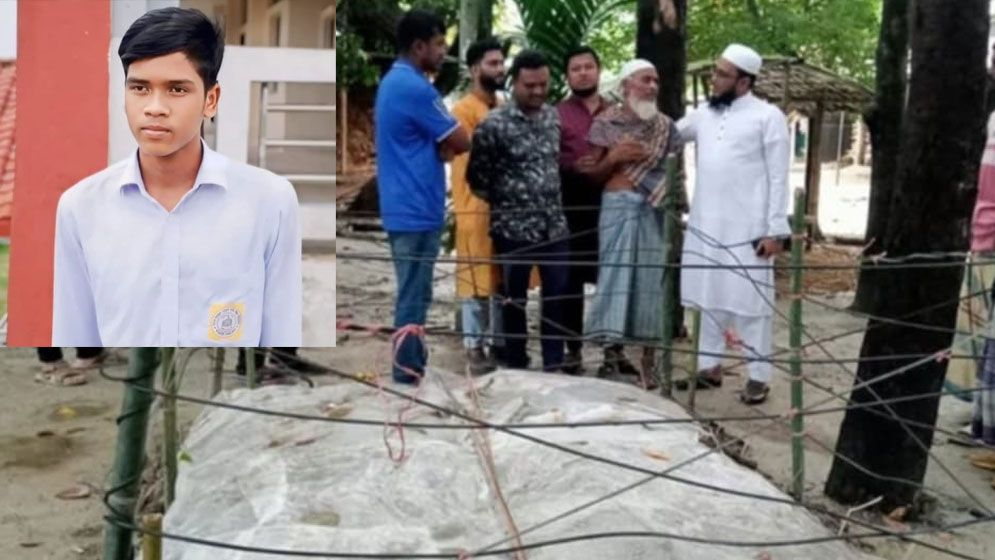Nazim Uddin aspired to pursue higher education, secure a job, and support his family. However, his life was tragically cut short by a bullet; Nazim, a college student, died prematurely. On the afternoon of August 5, he was fatally shot by the police in the Uttara East Police Station area of Dhaka. His body was brought back to his village and buried the following morning. Since his death, the life of his mother, Shimula Akhter, has changed profoundly.
Nazim was the son of Rustam Ali from the village of Bhatgaon in the Chiraym Union of Barhatta, Netrokona. He was a first-year student at Barhatta Government College and the younger of two siblings.
According to villagers and Nazim’s relatives, Rustam Ali had nothing besides his ancestral land. For over a decade, he and his family had been living in the Azimpur area of Uttara, Dhaka, where he and his wife worked at a soap factory. Nazim lived with his maternal grandparents in the village for his studies. He enrolled in Barhatta Government College on July 16, and two days later, he went to Uttara to visit his parents. From there, he joined a protest and was killed by police gunfire.
Now, his father Rustam Ali sits by his son’s grave, while his mother, Shimula Akhter, and sister, Nazma Akhter, stand nearby, weeping. Neighbors console them.
Rustam Ali says, “I had only one son; he was my only support in life. They shot him dead. I have nothing left. I demand justice for those who killed my innocent child.”
Nazim’s mother, Shimula Akhter, adds, “We are poor people. Apart from our home, we don’t own any land. We work in a factory in Dhaka. With what we earn, we support ourselves and fund our son’s education. He dreamed of studying, becoming educated, and getting a good job. Our financial hardships would have ended. But in an instant, everything was lost.”
Describing the events, Shimula Akhter says, “The factory was closed during the protest. We were all at home. My son went to the protest every day. On the afternoon of August 5, he stepped out, and shortly after, when I called him, he answered and said, ‘Mother, I’ll be back soon; don’t worry.’ Those were his last words. Later in the afternoon, when I called again, someone else answered and said, ‘Your son has been shot in the head.’ We rushed to Uttara East Police Station and saw protesters taking Nazim to the hospital from the scene. But the doctors declared him dead upon arrival.”
Nazim’s uncle, Arab Ali, says, “Nazim was a very peaceful boy. This loss is irreparable. May Allah grant him a place in Jannah.”
In response, Md. Rifat Rezuan Joy, a student from Sheikh Hasina University in Netrokona and a leader of the anti-discrimination movement, stated, “We are compiling a list of those injured or killed in the protest from our district. Leaders from the center will come, and they will be provided with all necessary government support.”
Barhatta Upazila Executive Officer (UNO) Farzana Akhter said, “Nazim Uddin, a student from our upazila, was killed in the anti-discrimination protest. The district administration provided his family with 25,000 taka on Sunday, and the upazila administration provided a check for 50,000 taka. Additional assistance will be provided to the family by the administration.”
